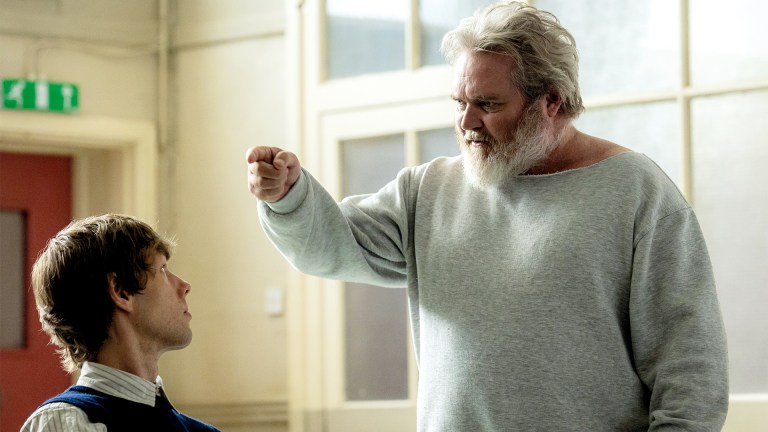Appallingly, it was revealed this year that asylum applications from Afghan troops who worked with UK Special Forces have been systematically blocked, reportedly to prevent them testifying to alleged war crimes by British soldiers.
These facts and figures prove that people who migrate to the UK are not strangers. They hail from nations whose histories, customs and institutions are deeply intertwined with the UK’s.
Research at Refugee Action found this to be a long-term trend in the asylum system. The UK’s history of conquest, colonisation, economic extraction and exploitation has played a key role in making the world we live in today – creating many of its challenges and conflicts.
An internal Home Office report leaked in 2020 said countries that share a language and colonial past “have similar institutions and political ties that stimulate movement between the two”, and that people on the move perceive they will be better able to rebuild their lives in our communities.
So, it should come as no surprise that refugees might choose the UK as a place to seek safety.
It’s easy for some, here in the former colonial “metropole”, to forget that people who lived in British colonies were also British subjects. While the historical relationship of Britain and her subjects may have been one of coloniser and colonised, it’s a shared history.
Advertising helps fund Big Issue’s mission to end poverty
This Labour government, like its predecessors (and feared successors) continues to ignore this link between Empire and migration.
What Keir Starmer’s “Island of Strangers” speech masks is a reality in which successive governments have preferred to treat migrants as strangers and political piñatas rather than neighbours and citizens.
Labour’s approach to immigration in power has not been to decisively break with the narratives and policies their predecessors or offer a real alternative to their feared successor, Reform UK.
Instead, they have joined the chorus of blaming migrants for what Starmer himself once denounced as the “political failure” of austerity and economic abandonment.
And so, immigration legislation and policy under this government looks like it will pick up where the last government left off: an exercise in attempted “divide and rule” reminiscent of the British Empire itself.
For instance, in February Yvette Cooper stood up in parliament to announce that most people who seek asylum in the UK will never be granted British citizenship and live as equals within our communities.
Advertising helps fund Big Issue’s mission to end poverty
Shamefully, this change to Home Office rules suggested that people who are forced to make a dangerous journey to get here are of “bad character”.
That guidance is now being challenged in the courts but the damage has been done for many people seeking safety here – particularly those already granted refugee status, who were nearing the point of eligibility for citizenship.
People have been made to feel that their status in the UK will always be second-class, temporary, without solid foundations. They have been deprived of the safety and security they were rightfully seeking here when they fled persecution in their countries of nationality.
People make dangerous journeys, often from countries impacted by the history of British colonial rule – and more recent military interventions – because the UK fails to provide adequate safe routes.
To arrive and be branded of “bad character” for risking life and limb to get here beggars belief. Worse yet, upon arrival, people are subject to de facto detention and what amounts to racial segregation, placed in hotels away from communities, forced into poverty and state dependence by the asylum work ban, and made vulnerable to the sort of racist attacks we saw last summer.
A climate of fear has been created that is felt deep within our communities. Racist rhetoric feeds this fear because those who are targeted know that words are powerfully connected to policy and violence.
Advertising helps fund Big Issue’s mission to end poverty
As summer approaches, there must be no repeat of these vile attacks on refugees, migrants, people of colour, mosques, asylum hotels and immigration advisers. The government needs to urgently honour its pledge on anti-racism and acknowledge that migration and asylum are racial justice issues.
It’s time their language welcomed people whose lives have been shaped by our history, and who seek safety here, instead of contributing to the hateful chorus that’s placed them in even more danger.
As the African American writer and civil rights campaigner James Baldwin wrote in his essay Stranger in the Village (about his own reception as a “stranger” in a parochial European place): “People are trapped in history and history is trapped in them.”
This goes as much for UK-born white Britons as for people migrating to this country, and we cannot make “strangers” of those with whom we share so much history.
Tim Naor Hilton is chief executive of Refugee Action.
Promises are easy to break. Sign Big Issue’s petition for a Poverty Zero law and help us make tackling poverty a legal requirement, not just a policy priority.
Advertising helps fund Big Issue’s mission to end poverty
Do you have a story to tell or opinions to share about this? Get in touch and tell us more. Big Issue exists to give homeless and marginalised people the opportunity to earn an income. To support our work buy a copy of the magazine or get the app from the App Store or Google Play.









